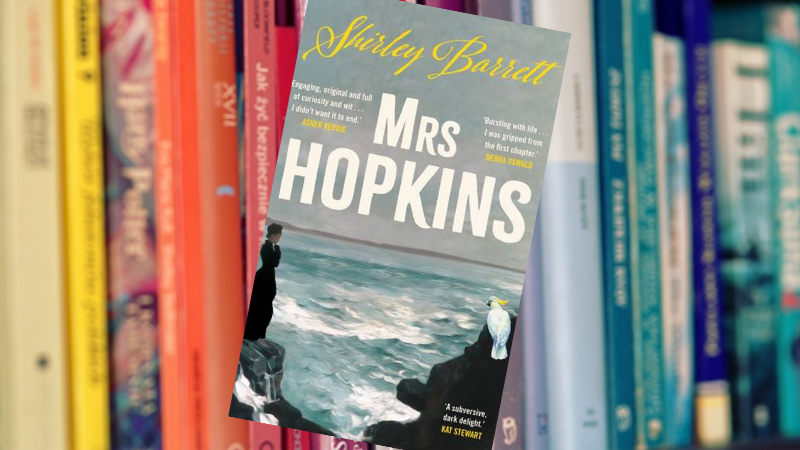Mrs Hopkins
by Shirley Barrett
Allen & Unwin
Shirley Barrett was known for her work as a screenwriter and director and her first film (Love Serenade) won the Camera d’Or at the Cannes Film Festival in 1996. She also wrote and directed television productions including Heartbreak High, Love Child, Love My Way and Offspring.
Shirley Barrett died on Sydney after a long illness and her last novel, inspired by real-life Sydney history, has just been published. A hundred and fifty years before the riots in the Don Dale Youth Detention Centre in the Northern Territory, Barrett takes the reader to a youth detention centre on Cockatoo Island in Sydney Harbour.
It was a rainy night in 1871 when an idealistic school mistress arrived at the Biloela (White Cockatoo) Industrial School for Girls. Built from Sydney sandstone as a convict barracks, it now housed about eighty girls, aged from 18 months to 18 years, who had been rounded up off Sydney’s streets.

Most of the girls had been found “wandering vagrant and destitute, unkempt and apparently uncared for”, and the school was meant to provide care, education and training for these neglected and abandoned children.
Haunted by her daughter’s death from influenza, Constance Hopkins had her own tale of survival and she was determined to find a way to reach the lost charges and improve their lives. But Mrs Hopkins was certainly not prepared for the chaos that greeted her in the prison-like environment.
The illiterate and incompetent supervisor who was prone to rages and his equally violent wife had no compassion, or control over the girls. Punishments were severe and the repairs had not been done to the damage incurred in the latest riot.
Authorities on the mainland were totally unaware of the terrible conditions the girls suffered and it was only the simpleton Henry, who stood watching the wharf as people come to and go from the island on the paddle steamer, who knew everything that was going on.
It is a haunting tale where the reader gets to know the abysmal circumstances, sourced from historical documents, that led to the girls being incarcerated, and the bleak futures they faced.
Lezly Herbert





